
Ouidah: The Heart of Benin's History and Culture
Ouidah, a city steeped in history, is one of the most significant cultural and historical centers in Benin. Known for its rich heritage, Ouidah offers a unique glimpse into the past, especially with its strong ties to the transatlantic slave trade. The city is home to the Ouidah Museum of History, which is housed in an old Portuguese fort. Here, you can learn about the city's poignant history and its role in the slave trade. Another important site is the Route of the Slaves, a path that traces the final steps of enslaved Africans before they were shipped to the Americas. Along this route, you will find the Door of No Return, a solemn monument that marks the point of departure for countless slaves. This route is not only a place of historical importance but also one of reflection and remembrance. Ouidah is also renowned for its vibrant culture and traditions. The city is a hub for Vodun (Voodoo) culture, and every January, it hosts the annual Vodun Festival. This colorful and energetic festival attracts visitors from around the world, eager to experience traditional music, dance, and rituals. The Sacred Forest of Kpasse, another significant site, is a mystical place filled with ancient trees and Vodun statues, offering a serene and spiritual escape. In addition to its historical and cultural attractions, Ouidah boasts beautiful beaches along the Atlantic coast. These sandy shores are perfect for relaxation and offer a peaceful contrast to the city's historical sites. Whether you're a history buff, a cultural enthusiast, or simply looking to unwind, Ouidah has something to offer every traveler.
Local tips in Ouidah
- Visit the Ouidah Museum of History early in the day to avoid the crowds.
- Take a guided tour of the Route of the Slaves to gain deeper insights into its historical significance.
- Attend the Vodun Festival in January for an unforgettable cultural experience.
- Bring sunscreen and water when visiting the beaches to stay comfortable.
- Wear comfortable shoes as many of the historical sites involve walking.
Ouidah: The Heart of Benin's History and Culture
Ouidah, a city steeped in history, is one of the most significant cultural and historical centers in Benin. Known for its rich heritage, Ouidah offers a unique glimpse into the past, especially with its strong ties to the transatlantic slave trade. The city is home to the Ouidah Museum of History, which is housed in an old Portuguese fort. Here, you can learn about the city's poignant history and its role in the slave trade. Another important site is the Route of the Slaves, a path that traces the final steps of enslaved Africans before they were shipped to the Americas. Along this route, you will find the Door of No Return, a solemn monument that marks the point of departure for countless slaves. This route is not only a place of historical importance but also one of reflection and remembrance. Ouidah is also renowned for its vibrant culture and traditions. The city is a hub for Vodun (Voodoo) culture, and every January, it hosts the annual Vodun Festival. This colorful and energetic festival attracts visitors from around the world, eager to experience traditional music, dance, and rituals. The Sacred Forest of Kpasse, another significant site, is a mystical place filled with ancient trees and Vodun statues, offering a serene and spiritual escape. In addition to its historical and cultural attractions, Ouidah boasts beautiful beaches along the Atlantic coast. These sandy shores are perfect for relaxation and offer a peaceful contrast to the city's historical sites. Whether you're a history buff, a cultural enthusiast, or simply looking to unwind, Ouidah has something to offer every traveler.
When is the best time to go to Ouidah?
Iconic landmarks you can’t miss
La Casa Del Papa
Experience the charm of Ouidah at La Casa Del Papa, where modern comfort meets rich local culture and stunning ocean views.

Pythons Temple
Explore Pythons Temple in Ouidah, a sacred site blending spirituality and rich cultural heritage, offering a unique glimpse into Benin's Vodoun traditions.
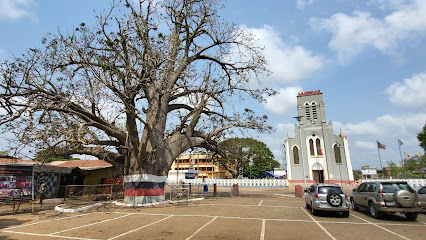
Café Boson
Discover the enchanting Café Boson at Plage Benin in Ouidah, where exquisite coffee meets stunning ocean views for an unforgettable experience.
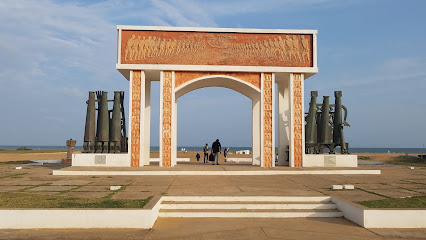
The Museum of the Zinsou Foundation
Explore the vibrant world of contemporary African art at the Zinsou Foundation Museum in Ouidah, a cultural gem showcasing local creativity and talent.
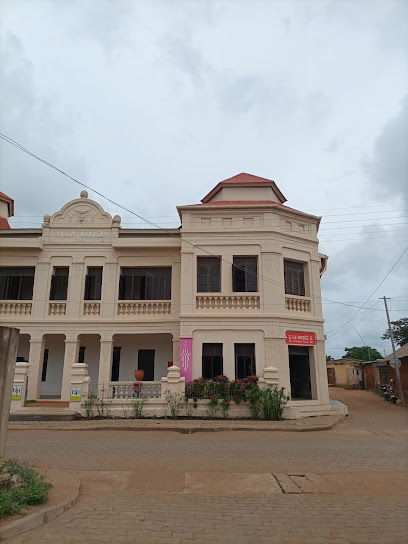
Ouidah Museum of History (Portuguese Fort)
Explore the rich history of Benin at the Ouidah Museum of History, where the past meets the present in a captivating cultural experience.
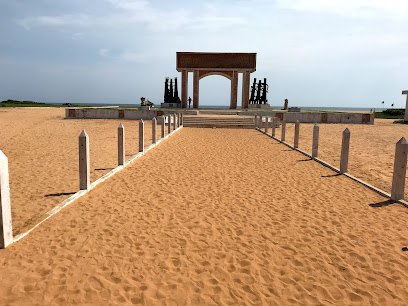
Sacred Forest
Discover the Sacred Forest in Ouidah, a serene park steeped in cultural significance and lush natural beauty, perfect for nature lovers and spiritual seekers.
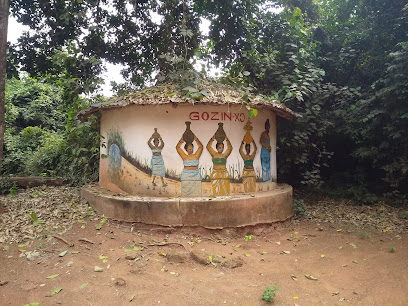
Ouidah visite-tourisme
Explore the rich history and vibrant culture of Ouidah, Benin's historical gem with stunning beaches and cultural treasures.
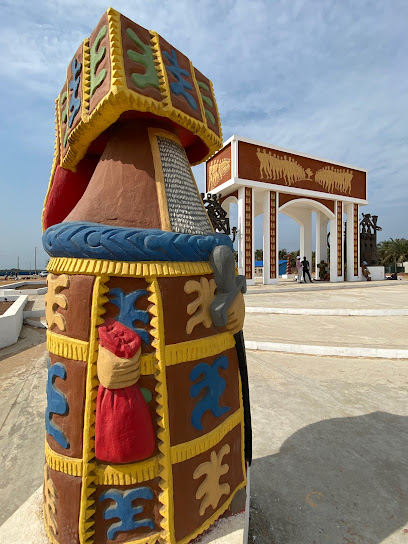
Memorial de Zoungbodji
Experience the profound history and resilience of Ouidah at the Memorial de Zoungbodji, a cultural tribute to the legacy of the transatlantic slave trade.
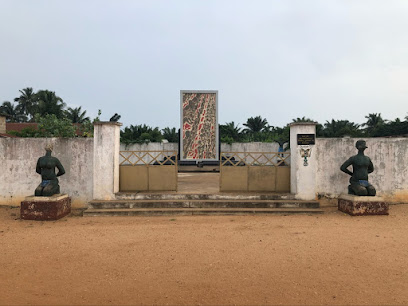
Arbre de l'oubli
Explore the Arbre de l'Oubli in Ouidah, a poignant monument that honors the memory of the enslaved and reflects the rich cultural history of Benin.
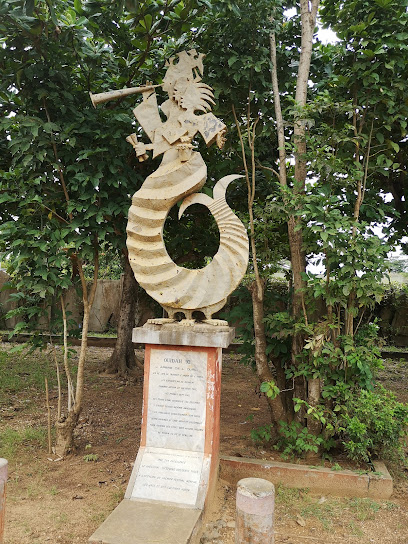
Memorial of Remembrance
Explore the Memorial of Remembrance in Ouidah, a poignant monument celebrating history, resilience, and cultural heritage in the heart of Benin.
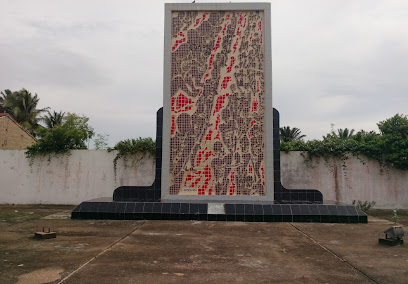
Mémorial ZOMACHI
Explore Mémorial ZOMACHI in Ouidah, a powerful cultural landmark reflecting the history of the African diaspora and the transatlantic slave trade.
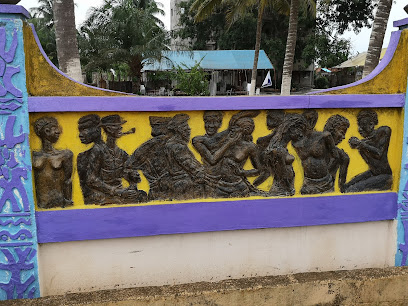
Python temple
Discover the mystical Python Temple in Ouidah, a significant shrine reflecting Benin's Vodun traditions and rich cultural heritage.
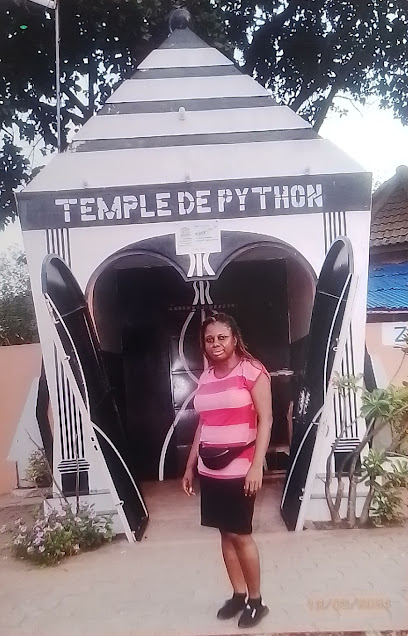
Site historique de Ouidah
Explore the historical depth and cultural vibrancy of Ouidah, a coastal gem in Benin rich with stories of the slave trade and local traditions.
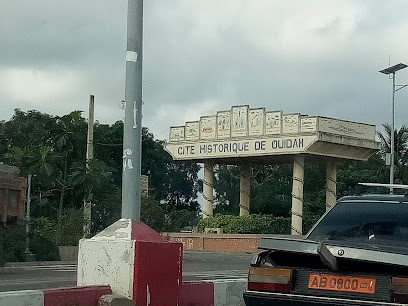
Marché Kpassè
Discover the bustling Marché Kpassè in Ouidah, a vibrant town square filled with local crafts, delicious cuisine, and rich cultural experiences.
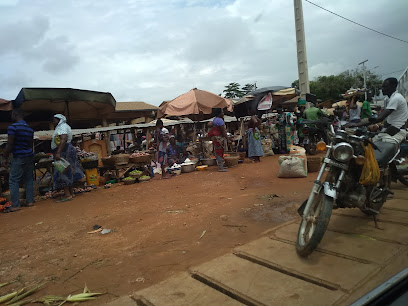
Marché Zobè
Discover the vibrant culture and artistry at Marché Zobè, Ouidah's bustling town square, where history and local flavors intertwine.

Unmissable attractions to see
Pythons Temple
Explore the Pythons Temple in Ouidah, Benin, a unique spiritual site where you can connect with local culture and witness the reverence for sacred snakes.
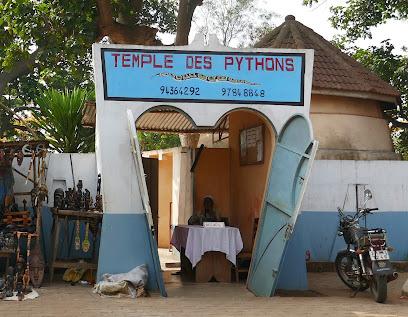
Café Boson
Experience the best of local coffee at Café Boson, a charming coffee roaster by the beautiful Plage Benin in Ouidah, Benin.
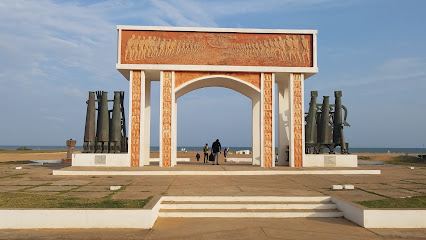
Ouidah Museum of History (Portuguese Fort)
Explore the Ouidah Museum of History, a historical gem showcasing the rich heritage and culture of Benin through captivating exhibitions.
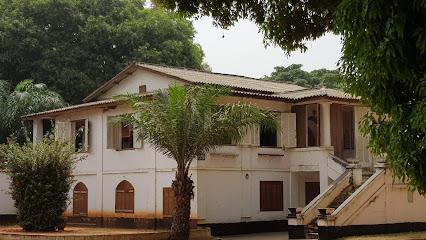
Ouidah Museum of History (Portuguese Fort)
Discover the rich heritage of Benin at the Ouidah Museum of History, located within a historic Portuguese fort, where past meets present.
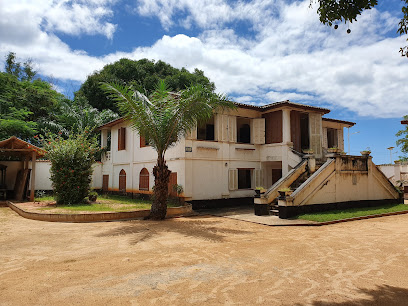
Basilica
Explore the architectural beauty and spiritual essence of the Basilica of Ouidah, a remarkable Catholic church in Benin's historic city.
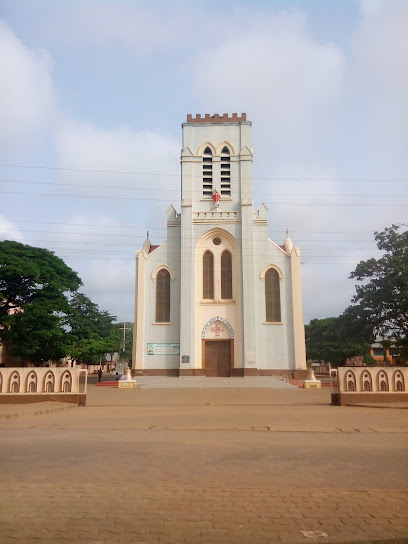
Fort Français Ouidah
Explore the poignant history of the slave trade at Fort Français Ouidah, a museum dedicated to preserving the cultural heritage of Benin.
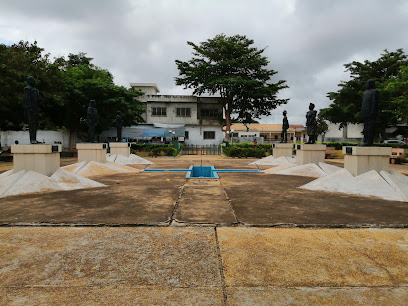
Plage de Ouidah
Experience the rich history and natural beauty of Plage de Ouidah, a must-visit beach destination in Benin, perfect for relaxation and cultural immersion.
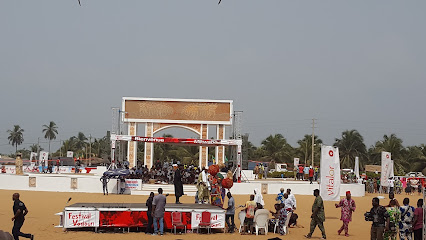
Détour par Gogotinkpon
Discover the cultural richness and natural beauty of Détour par Gogotinkpon, a must-visit attraction in Come, Benin for all travelers.
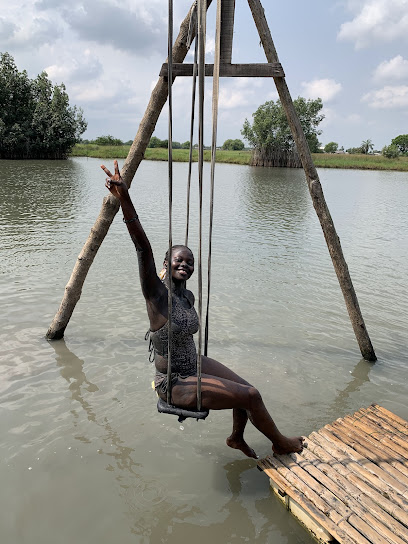
The tree of oblivion
Explore the Tree of Oblivion in Ouidah, a museum that reveals the profound cultural heritage and historical significance of Benin.
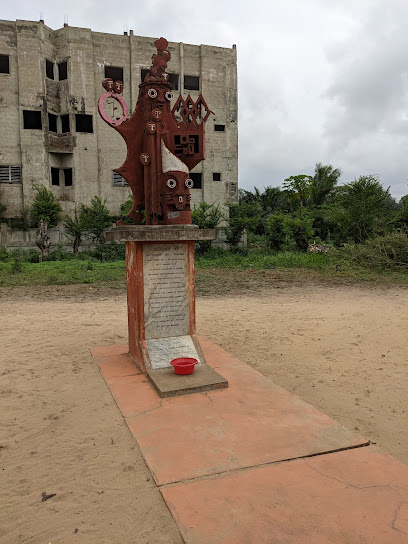
Guide tourism ouidah Benin
Explore the captivating history, culture, and serene beaches of Ouidah, Benin, a must-visit destination for every traveler.

Essential places to dine
Blue Moon bar & grill'
Discover Ouidah's culinary charm at Blue Moon Bar & Grill - where mouthwatering barbecue meets vibrant local culture.
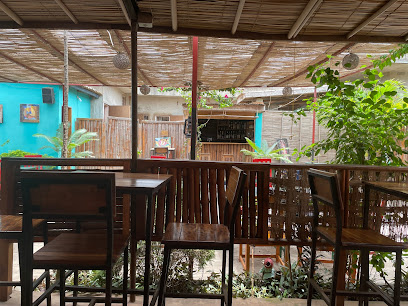
Restaurant L'Amicale
Savor authentic West African flavors at Restaurant L'Amicale in Ouidah - where every dish tells a story.
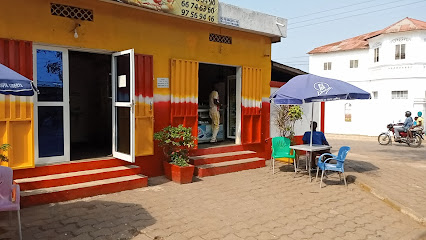
Les délices de la côte
Experience authentic Beninese cuisine at Les Délices de la Côte in Ouidah - where every dish tells a story.
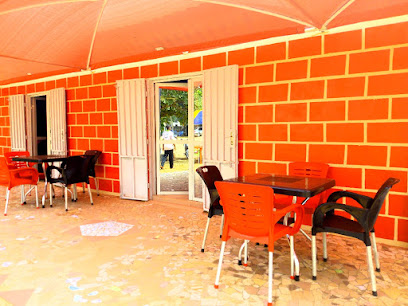
Hakuna matata restaurant grillades
Experience authentic Beninese cuisine at Hakuna Matata Restaurant Grillades - where every meal is a celebration of flavor.
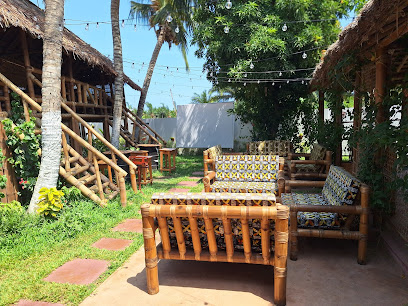
La Manne
Discover authentic Beninese cuisine at La Manne in Ouidah - where every meal tells a story.
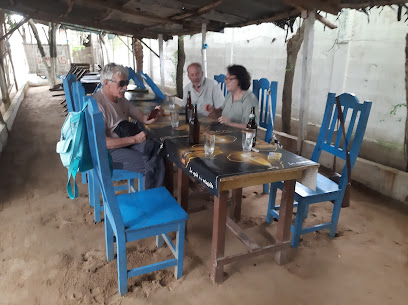
Restaurant DAGBEMABOU
Savor authentic Beninese flavors at Restaurant DAGBEMABOU in Ouidah - a hidden gem for food lovers.
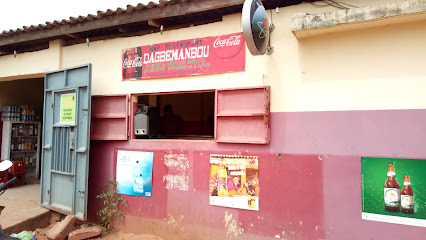
Alozo Terrasse
Experience the rich flavors of African cuisine at Alozo Terrasse in Ouidah - a culinary haven for tourists seeking authentic local dishes.
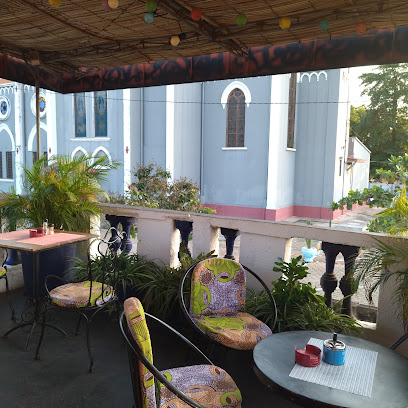
Chez Bruno
Experience the best of Beninese cuisine at Chez Bruno, a vibrant restaurant in Ouidah known for its delicious dishes and welcoming atmosphere.
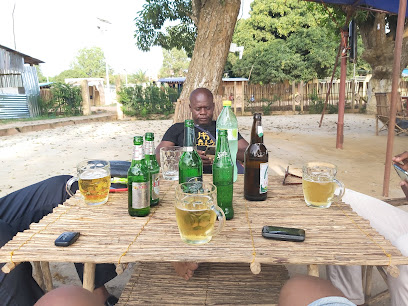
La Cabane du CCRI
Experience authentic Beninese cuisine at La Cabane du CCRI in Ouidah – where every dish tells a story.
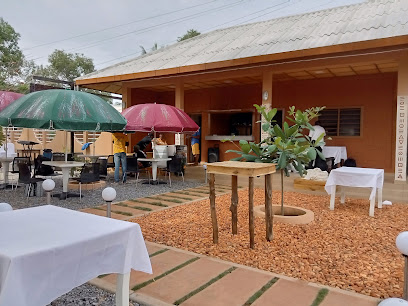
Chez Maman Brunelle
Discover authentic African flavors at Chez Maman Brunelle in Ouidah – where every dish tells a story.

Maquis Chez Soi
Discover authentic Beninese cuisine at Maquis Chez Soi in Ouidah - where tradition meets taste in every delicious dish.
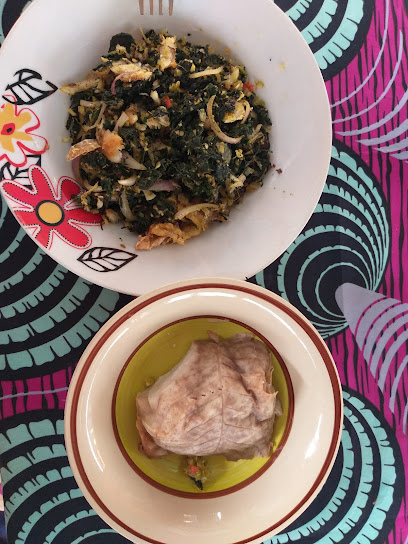
Bar Restaurant La Joie
Experience authentic Beninese cuisine at Bar Restaurant La Joie in Ouidah – where local flavors meet warm hospitality.

Chez Nafi - Restaurant Les Bonnes Saveurs
Experience the rich culinary heritage of Benin at Chez Nafi - Restaurant Les Bonnes Saveurs in Ouidah, where every dish tells a story.

Ankpete
Experience the vibrant flavors of Ouidah at Ankpete, where barbecue delights await every food lover.
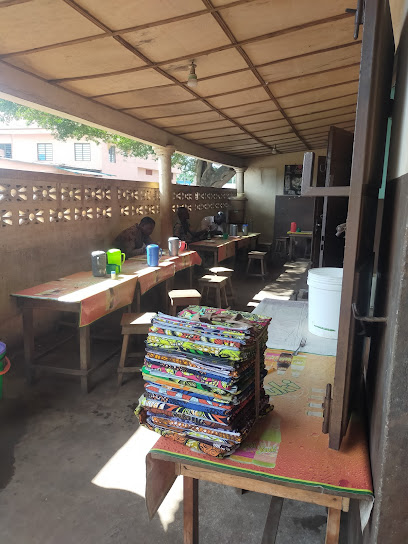
L'oasis
Discover L'oasis in Ouidah: A delightful restaurant offering authentic Beninese cuisine in a serene setting perfect for travelers.
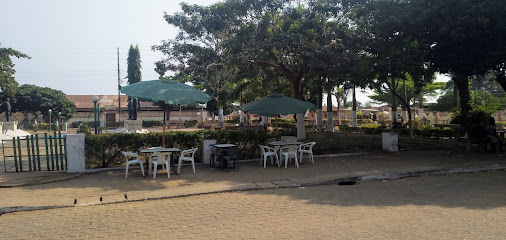
Markets, malls and hidden boutiques
Chez Nafi, Maman Fructueux
Discover the cultural richness and vibrant shopping experience at Chez Nafi, Maman Fructueux in Ouidah, Benin.
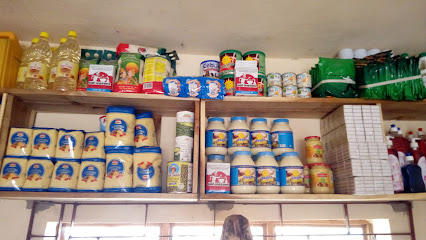
ELEGANCIA BEAD
Explore Ouidah's vibrant culture through exquisite handcrafted beadwork at ELEGANCIA BEAD, where each piece tells a unique story.
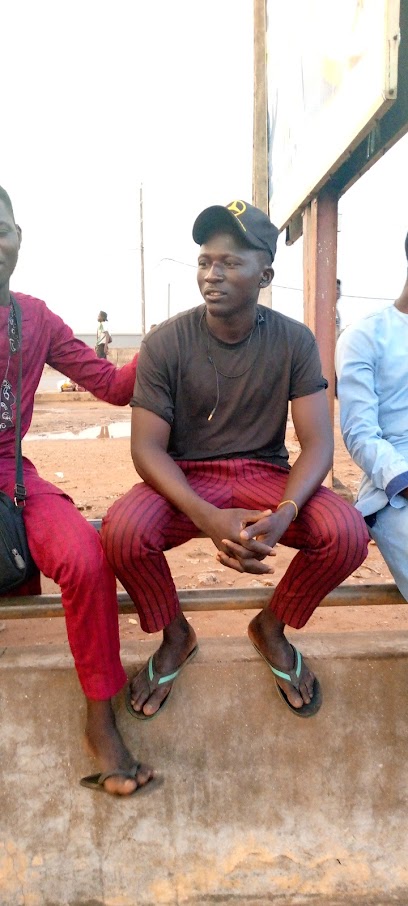
acɔ́ (Atcho)
Explore acɔ́ (Atcho) in Ouidah, a captivating used book store offering a rich collection of literary treasures and a cozy atmosphere for book lovers.
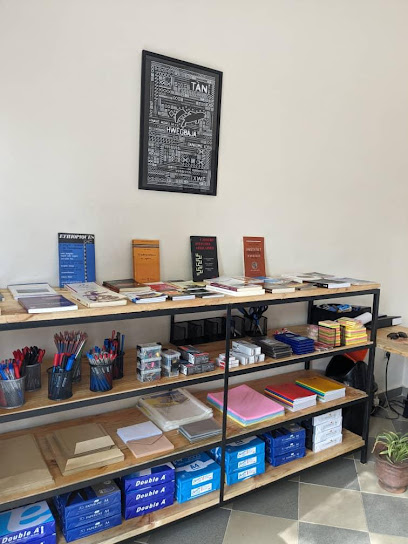
Lak Aheme Dagbegnon
Explore Ouidah's local culture at Lak Aheme Dagbegnon, a vibrant supermarket offering authentic Beninese products and flavors.

Donné Gsm
Explore the vibrant Donné Gsm shopping mall in Ouidah, where local culture meets a diverse shopping experience.
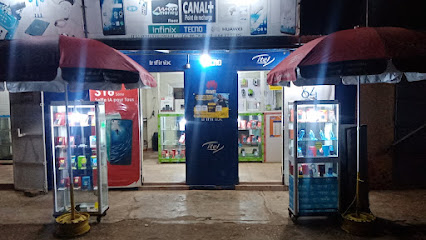
GINA BOUTIQUE
Explore GINA BOUTIQUE in Ouidah for unique local crafts and souvenirs that embody the rich culture of Benin.
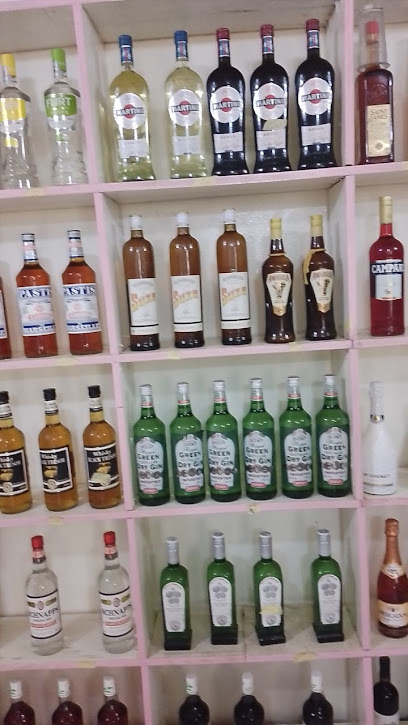
DDF OUIDAH
Explore DDF Ouidah for a unique selection of local and international spirits, and immerse yourself in the vibrant culture of Ouidah.
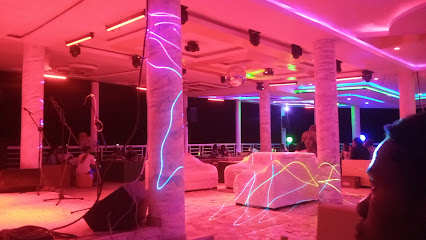
Groupe Set Ouidah
Experience the essence of Ouidah at Groupe Set Ouidah, a vibrant shopping mall offering local crafts, fashion, and delicious dining options.

Marché Aux Puces (Ouidah)
Experience the vibrant atmosphere and local culture at Marché Aux Puces, Ouidah’s premier electronics market for tourists and locals.
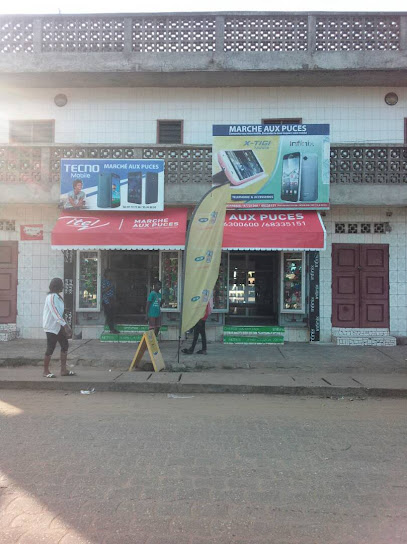
Ouidah Pain
Explore the delightful flavors of Ouidah at Ouidah Pain, a charming bakery known for its exquisite pastries and local delights.
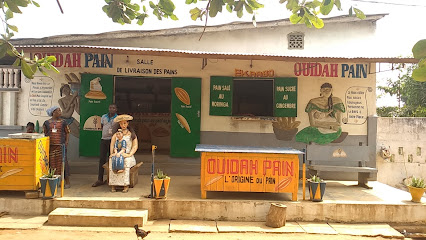
Elu shop
Explore the vibrant fashion scene of Ouidah at Elu Shop, where local culture meets contemporary style in a delightful shopping experience.
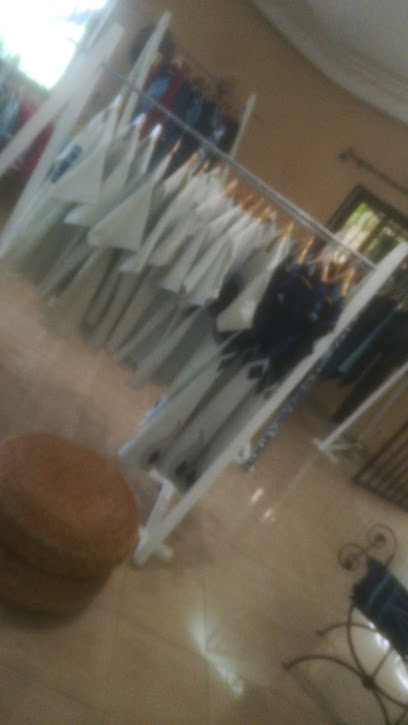
Ets Selah & Fils
Explore a dynamic shopping experience in Ouidah at Ets Selah & Fils, blending local culture with international flair.
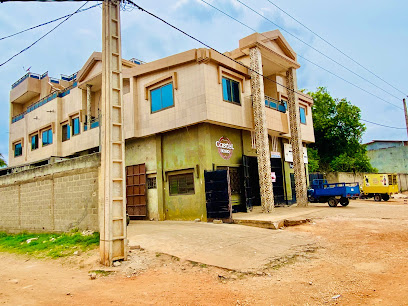
ADÕ XÕ
Discover the vibrant local culture and flavors at ADÕ XÕ, a must-visit grocery store in Ouidah, Benin, offering unique products and warm hospitality.
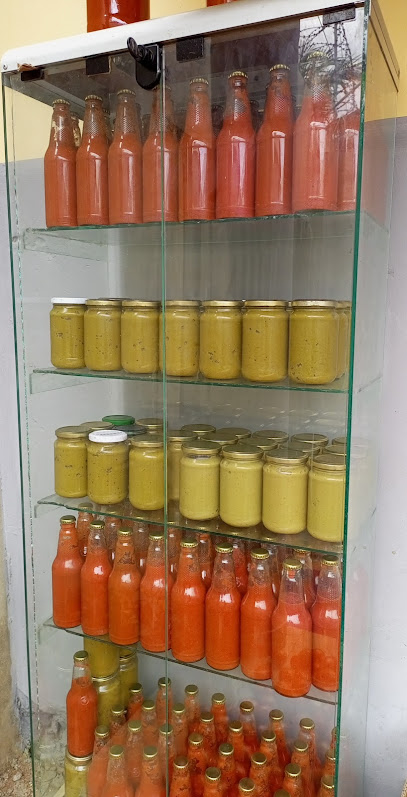
Ets chez Maman juste
Discover the vibrant shopping experience at Ets chez Maman juste in Ouidah, where local crafts and unique souvenirs await.
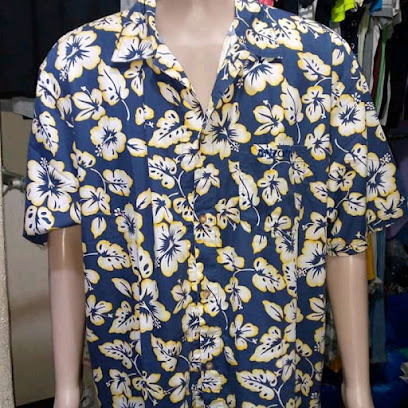
SION Market
Discover the vibrant SION Market in Ouidah, a local produce market showcasing the rich flavors and culture of Benin through fresh fruits and vegetables.
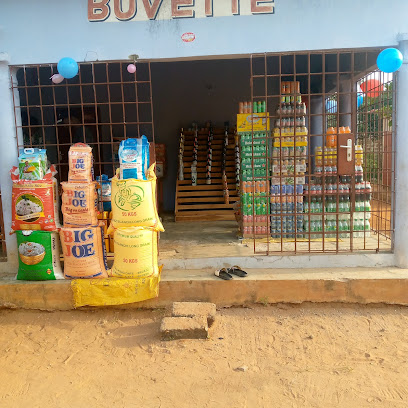
Essential bars & hidden hideouts
Miwa City
Experience the lively culture of Ouidah at Miwa City, a vibrant bar and restaurant offering delicious cuisine and a welcoming atmosphere.
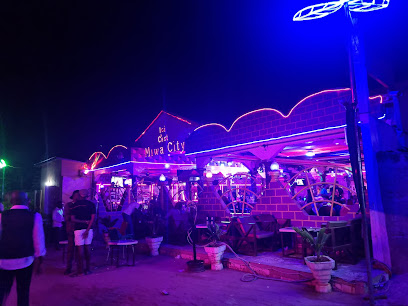
Blue Moon bar & grill'
Experience the vibrant flavors and lively atmosphere of Ouidah at Blue Moon Bar & Grill, a top destination for barbecue lovers.
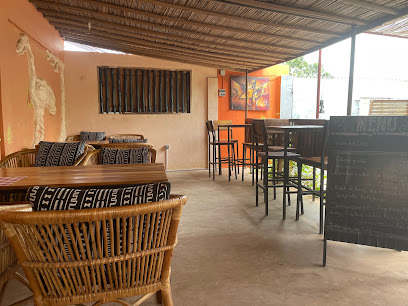
Bar La Joie et Fils
Experience the vibrant nightlife of Ouidah at Bar La Joie et Fils, where local culture meets refreshing drinks and live music.
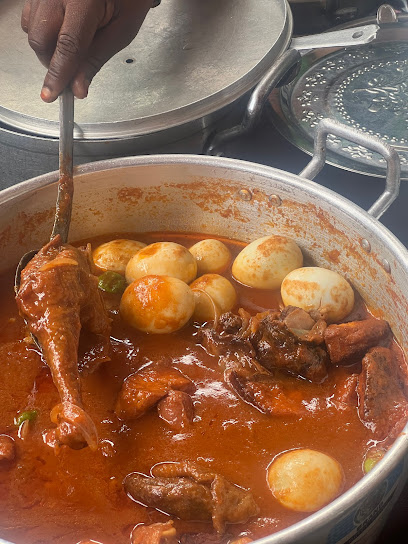
BOFIS
Discover the vibrant nightlife of Ouidah at BOFIS, where local drinks and a lively atmosphere await you in the heart of Benin.

Cabo Escuna
Discover the vibrant atmosphere and delicious menu at Cabo Escuna, the perfect bar and restaurant in Ouidah for tourists seeking local flavors.
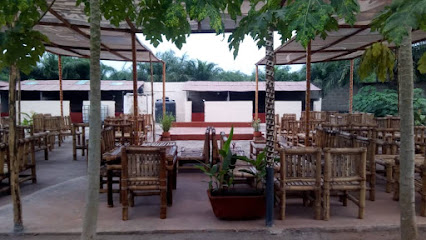
Bar Restau Point d'Escale
Discover the vibrant atmosphere of Bar Restau Point d'Escale in Ouidah, where local drinks and cuisine meet warm hospitality.
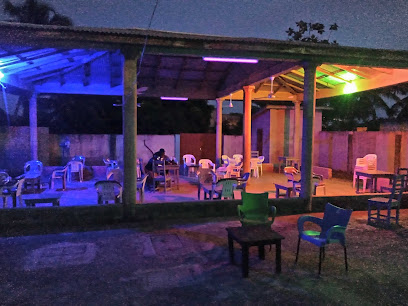
Négoce Club
Experience the vibrant nightlife at Négoce Club in Ouidah, a lively bar offering signature cocktails and an energizing atmosphere.
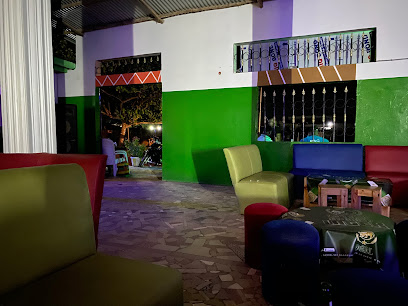
La Reine des Bières
Experience the vibrant nightlife of Ouidah at La Reine des Bières, where local brews and lively ambiance await every traveler.
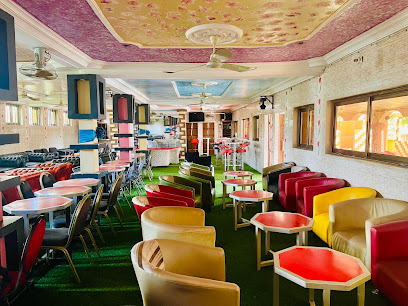
La Référence
Experience the vibrant atmosphere and local culture at La Référence, a cozy bar in the heart of Ouidah, Benin.
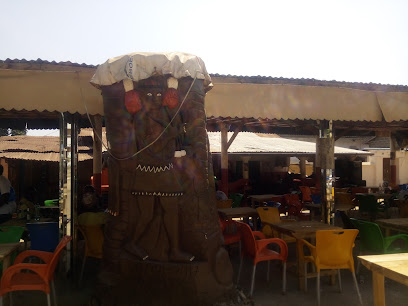
Bar Resto Prince Number One
Experience the vibrant nightlife of Ouidah at Bar Resto Prince Number One, a lively bar offering local flavors and a welcoming atmosphere.

Mea culpa
Discover the lively atmosphere of Mea Culpa, a vibrant bar in Ouidah, where local culture and relaxation blend perfectly for an unforgettable evening.

Bar Restaurant La Joie
Experience the vibrant flavors of Benin at Bar Restaurant La Joie, a must-visit culinary gem in the heart of Ouidah.

Bar-café-restaurant
Discover the essence of Ouidah at this lively bar-café-restaurant, where local flavors meet a welcoming ambiance.

Chez tout chaud
Experience the vibrant spirit of Ouidah at Chez Tout Chaud, a local bar offering refreshing drinks and a lively atmosphere.
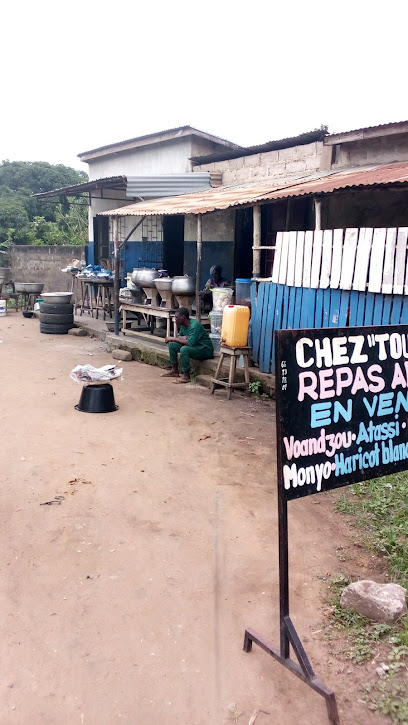
Local Phrases
-
- HelloKuabo
[Kwa-bo] - GoodbyeDeha
[De-ha] - YesWoo
[Woo] - NoEni
[E-ni] - Please/You're welcomeMèsi
[Meh-see] - Thank youMèsi
[Meh-see] - Excuse me/SorryPardon
[Pah-don] - How are you?Mi ku dè
[Mee koo deh] - Fine. And you?Mi dè. E wé?
[Mee deh. Eh way?] - Do you speak English?O wa fè Anglé?
[Oh wah feh Ahn-glay?] - I don't understandMi ní fè
[Mee nee feh]
- HelloKuabo
-
- I'd like to see the menu, pleaseMi fè wé meni, mèsi
[Mee feh way meh-nee, meh-see] - I don't eat meatMi ní fè lègõ
[Mee nee feh leh-goh] - Cheers!Afié
[Ah-fee-eh] - I would like to pay, pleaseMi fè pè, mèsi
[Mee feh peh, meh-see]
- I'd like to see the menu, pleaseMi fè wé meni, mèsi
-
- Help!Vô
[Voh] - Go away!Dé
[Deh] - Call the Police!O wa tchè la Polis
[Oh wah cheh lah poh-lees] - Call a doctor!O wa tchè le docteur
[Oh wah cheh leh dohk-tuhr] - I'm lostMi wé lè
[Mee way leh] - I'm illMi lè
[Mee leh]
- Help!Vô
-
- I'd like to buy...Mi fè acheté...
[Mee feh ah-shay-tay] - I'm just lookingMi wé sèlè
[Mee way se-leh] - How much is it?Kè ka fè?
[Keh ka feh?] - That's too expensiveKè ka gbe o
[Keh ka gbeh oh] - Can you lower the price?O wa tchè bè o
[Oh wah cheh beh oh]
- I'd like to buy...Mi fè acheté...
-
- What time is it?Kè lèrè?
[Keh leh-reh?] - It's one o'clockO wé kê
[Oh way keh] - Half past (10)Mwè mê
[Mweh meh] - MorningMéza
[Meh-zah] - AfternoonHume
[Hoo-meh] - EveningSéza
[Seh-zah] - YesterdayKêkê
[Keh-keh] - TodayNan
[Nahn] - TomorrowLê
[Leh] - 1Un
[Oon] - 2Dô
[Doh] - 3Tê
[Teh] - 4An
[Ahn] - 5Sê
[Seh] - 6Sô
[Soh] - 7Pô
[Poh] - 8Hwê
[Hweh] - 9Lô
[Loh] - 10Dê
[Deh]
- What time is it?Kè lèrè?
-
- Where's a/the...?Kê là...?
[Keh lah...?] - What's the address?Kê adrês?
[Keh ah-dreh-s?] - Can you show me (on the map)?O wa mè wé (sù la map)?
[Oh wah meh way (soo lah map)?] - When's the next (bus)?Kê wê la prochin (bus)?
[Keh way lah proh-sheen (boos)?] - A ticket (to ....)Un bilé (pô ....)
[Oon bee-lay (poh ....)]
- Where's a/the...?Kê là...?
History of Ouidah
-
Ouidah, once part of the powerful Kingdom of Dahomey, was a major center of the region's political and military might from the 17th to the 19th centuries. The Dahomey Kingdom was renowned for its well-organized military, including the formidable all-female regiment known as the Dahomey Amazons.
-
From the 17th to the 19th centuries, Ouidah was a major hub in the transatlantic slave trade. The city was an epicenter where countless Africans were captured, sold, and shipped to the Americas. The 'Route of Slaves' is a poignant trail in Ouidah that traces the path taken by enslaved people from the market to the ships.
-
The Door of No Return is a stark memorial in Ouidah, symbolizing the departure point for enslaved Africans who were shipped to the New World. This arch serves as a solemn reminder of the countless lives affected by the transatlantic slave trade and is a focal point for visitors reflecting on this dark chapter in history.
-
The Sacred Forest of Kpasse is a mystical site in Ouidah dedicated to the legendary founder of the city, King Kpasse. This forest is not only a natural sanctuary but also a place of spiritual significance, filled with sacred trees and statues representing various deities and spirits venerated in the local Vodun religion.
-
Built in the early 18th century, the Portuguese Fort in Ouidah was initially a slave trading post. Today, it houses the Ouidah Museum of History, which offers exhibits that detail the city's role in the slave trade, its history, and the cultural heritage of the Dahomey Kingdom.
-
Constructed in the early 20th century, the Basilica of the Immaculate Conception stands as a prominent landmark in Ouidah. This Roman Catholic church showcases the blending of European architectural styles with local cultural elements, reflecting the religious and cultural diversity of the area.
-
Every January, Ouidah hosts the vibrant Annual Vodun Festival, celebrating the traditional Vodun religion that is deeply rooted in the region. This festival attracts visitors and practitioners from around the world, featuring elaborate ceremonies, dances, and rituals that honor the Vodun deities and spirits.
Ouidah Essentials
-
Ouidah is accessible via Cotonou Cadjehoun Airport (COO), located about 40 kilometers to the east. From the airport, you can hire a taxi or take a bus to Ouidah. The journey by road typically takes around an hour, depending on traffic conditions. Alternatively, you can take a shared taxi or minibus (known locally as 'zem') from Cotonou to Ouidah.
-
Within Ouidah, the most common forms of transportation are motorcycles ('zemidjans') and taxis. Zemidjans are a popular and affordable way to get around the city, but be sure to negotiate the fare before starting your journey. Taxis are also available, and for longer distances, you can opt for shared taxis. Walking is a pleasant way to explore the town's historic sites, as many attractions are within walking distance of each other.
-
The official currency of Benin is the West African CFA franc (XOF). It's advisable to carry cash, as credit cards are not widely accepted outside major hotels and restaurants. ATMs are available in Ouidah, but they may not always be reliable, so it's a good idea to withdraw enough cash in Cotonou before traveling to Ouidah. Currency exchange services are available at banks and authorized exchange bureaus.
-
Ouidah is generally considered safe for tourists, but like any travel destination, it is important to take standard precautions. Avoid walking alone at night and keep an eye on your belongings in crowded areas. Be cautious in the area around the Door of No Return and the beach, as these can be hotspots for petty crime targeting tourists. Always use reputable transportation options and avoid displaying valuables openly.
-
In case of an emergency, dial 117 for police assistance or 118 for fire services. The local hospital in Ouidah can handle minor health issues, but for serious medical emergencies, you may need to travel to Cotonou. It is highly recommended to have travel insurance that covers medical emergencies. Pharmacies are available in Ouidah for over-the-counter medications.
-
Fashion: Do dress modestly, especially when visiting religious or traditional sites. Avoid wearing revealing clothing. Religion: Do respect local customs and traditions, particularly in religious places like temples and sacred forests. Public Transport: Do be respectful and polite to drivers and fellow passengers. Don't forget to negotiate fares beforehand with zemidjan drivers. Greetings: Do greet people with a handshake or a smile. It's polite to address elders with respect. Eating & Drinking: Do try local dishes and accept food offerings graciously. Don't refuse hospitality, as it is considered impolite.
-
To experience Ouidah like a local, visit the local markets where you can buy fresh produce and traditional Beninese goods. Engage with locals, who are often friendly and willing to share stories about the town's history and culture. Don't miss visiting the Python Temple and the Sacred Forest. For a unique experience, take a walk along the Route des Esclaves, which offers a poignant insight into the town's historical significance in the transatlantic slave trade.
Trending Landmark in Ouidah
-
La Casa Del Papa
-
Pythons Temple
-
Café Boson
-
The Museum of the Zinsou Foundation
-
Ouidah Museum of History (Portuguese Fort)
-
Sacred Forest
-
Ouidah visite-tourisme
-
Memorial de Zoungbodji
-
Arbre de l'oubli
-
Memorial of Remembrance
-
Mémorial ZOMACHI
-
Python temple
-
Site historique de Ouidah
-
Marché Kpassè
-
Marché Zobè
Nearby Cities to Ouidah
-
Things To Do in Cotonou
-
Things To Do in Lokossa
-
Things To Do in Aneho
-
Things To Do in Porto-Novo
-
Things To Do in Lomé
-
Things To Do in Notse
-
Things To Do in Lagos
-
Things To Do in Atakpamé
-
Things To Do in Abeokuta
-
Things To Do in Kpalimé
-
Things To Do in Ho
-
Things To Do in Ibadan
-
Things To Do in Koforidua
-
Things To Do in Accra
-
Things To Do in Benin City








